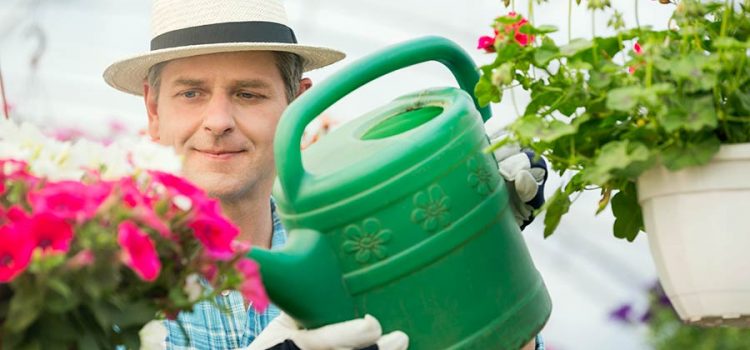Both outdoor and indoor plants need water to thrive. However, you need to be careful about the water you use to water your plants. As we’ve discussed before, most of the homes in the United States have hard water running through their pipes. Hard water is basically referred to as water with an elevated concentration of chalky or metallic minerals such as iron rust, magnesium, and calcium. The presence of these particles makes the water heavier and causes it to leave mineral deposits behind, causing a number of problems around the home and in your house plants.
The very first thing to notice about hard water in your home is the white chalky residue commonly referred to as “scaling” when the water evaporates. In addition to having adverse effects on your equipment and surfaces, this water can adversely affect your house plants. Most plants need the correct balance of moisture and nutrients to ensure perfect health, and hard water can disrupt this balance in a number of ways. Here are some of the effects hard water has on your house plants.
Scale Covers the Leaves of the Plants
The white chalky residue left behind when water evaporates also gets left behind on plants. This is due to the watering process where you get both the soil and leaves wet for maximum absorption. The mineral buildup can also be outside the plant in an area where the water was absorbed. This residue on the leaves makes it difficult for the plant to access enough sunlight affecting the plant’s normal functioning.
Calcium Carbonate Coats the Soil and Roots
Calcium is the main component of hard water. When the hard water is soaked into the soil or absorbed by the roots, the chalky residue is left behind, creating a calcium carbonate buildup. Increased concentration of calcium carbonate could suffocate the roots, denying them a chance to absorb all the essential nutrients for optimal growth. This can be remedied by frequently changing the soil or, more importantly, using distilled or softened water.
Chemicals Change Blossom and Leaf Colors
Certain plants are greatly affected by the changes in the environment that hard water causes. Flowering favorites such as chrysanthemums and roses are a couple of examples of plants that are affected by hard water. These changes can begin to manifest in the form of changes in pigmentation in the leaves or flowers. These changes could be a result of minor malnutrition in your plants.
Over-Charges Existing Fertilizer
To boost growth in your house plants, you probably make use of fertilizers. Most of these fertilizers are full of salts, something that most plants enjoy. The use of hard water could result in an increase in salt deposits within the soil, and soil with too much water or nutrients can prove to be harmful to your plants. You need to ensure you have the right balance of nutrients in the soil to ensure even growth patterns and better health for your plants. It is not advisable to allow hard water to mix with soil unless you are well aware of the soil composition. Adding a water filtration or treatment unit to your home in Austin Tx can help your plants get the balance of nutrients and salts that they need to thrive.
To protect your house plants from potential damage, you may have to install a water purification, filtration, or softener system to help minimize some of the problems hard water can cause for your plants. They’ll appreciate the difference!
